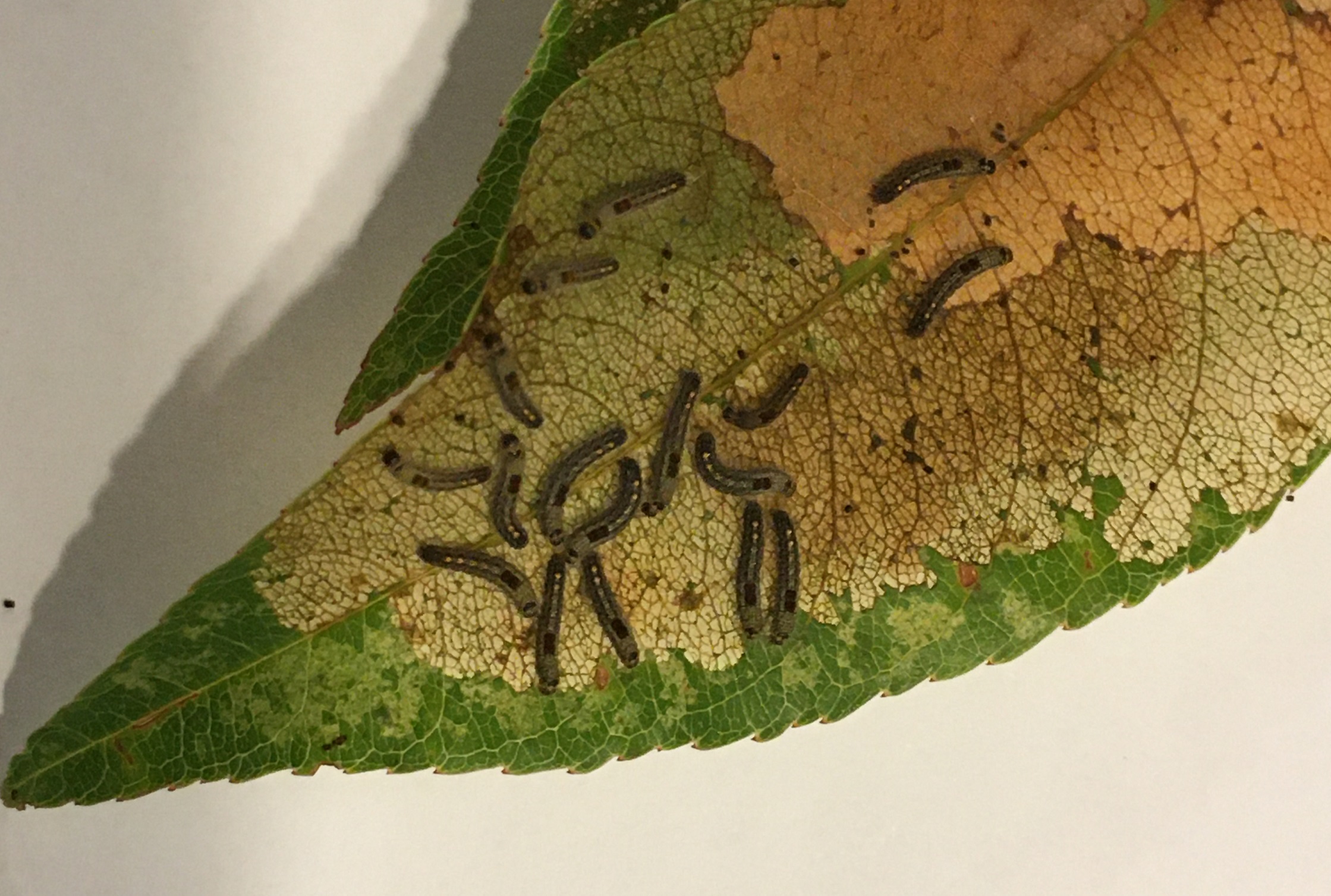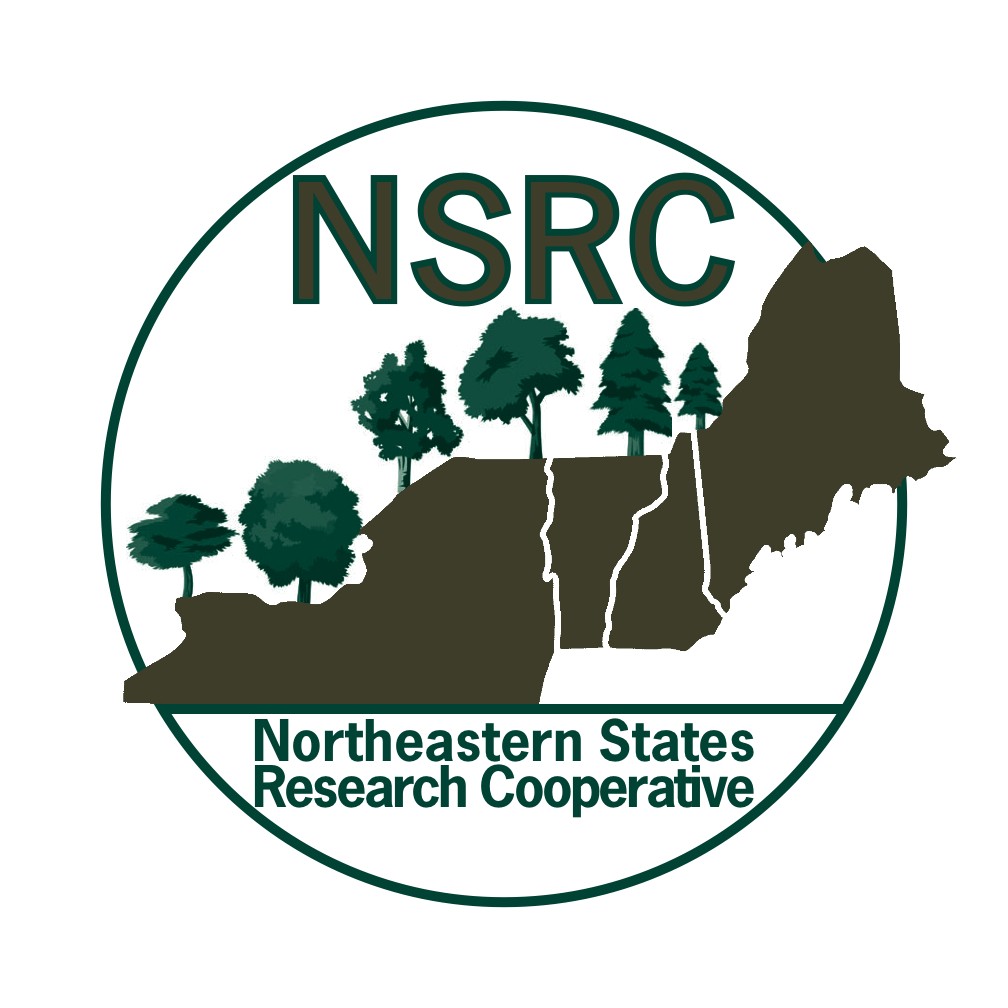Northeastern States Research Cooperative Announces 13 Research Awards for the Northern Forest
Innovative research in Maine will support sustainable forest management needs

Orono, ME—Northeastern States Research Cooperative (NSRC) and UMaine’s Center for Research on Sustainable Forests are pleased to announce a $1.6 million investment in 13 research projects to address priority issues facing communities and businesses that rely on Northern Forest resources. The projects cover a broad range of concerns related to land use and sustainable forestry, rural communities and economic development, climate change, biodiversity, recreation and tourism, invasive pests and diseases, and Traditional Ecological Knowledge.
Strongly supported by Maine’s Federal delegation, funding comes from Congressional appropriations through a partnership with the research and development arm of the USDA Forest Service. This research spans the 26 million acres of the Northern Forest in Maine, New Hampshire, New York, and Vermont. Seven of the projects will be led by or collaborate directly with the Forest Service. The private sector, states, and other organizations will contribute an additional $800,000 to the research.
“The USDA Forest Service has a long history of working with a variety of partners to ensure the sustainability of the Northeastern forests, and the Northern Research Station is proud to be contributing to the work of the Northeastern States Research Cooperative,” said Cynthia West, Director of the Northern Research Station and the Forest Products Laboratory.
The NSRC was established in 2001 to support research activities that benefit “the people who live within the Northern Forest Region, work with its resources, use its products, visit it, and care about it.”
This research will have regional impact, but Mainers will immediately benefit from three projects based in the state.
- Angela Mech, Assistant Professor of Forest Entomology at UMaine, will collaborate with researchers from UMaine, UNH, Maine Forest Service and USDA Forest Service to develop a browntail moth (BTM) monitoring program using BTM mating pheromones to detect current and future outbreak populations and to determine if a mating disruption control program may be an effective management option.
- Dan Hayes, UMaine Associate Professor of Geospatial Analysis & Remote Sensing and Director, Barbara Wheatland Geospatial Analysis Laboratory, will build on current inventory-based carbon estimation methods to develop and report a spatially-and temporally-explicit carbon budget for the forest sector of the Northeastern States.
- US Forest Service Research Forester Laura Kenefic with UMaine University Forest Manager Keith Kanoti will gather diverse perspectives from an advisory panel of stakeholders from state and federal agencies, Tribal entities, landowners, forestry practitioners, and others to produce a new silvicultural guide for the northern conifer forest type, which covers 6 million acres of New England, that will include scientifically robust and ecologically sound silvicultural recommendations within the context of contemporary forest management needs.
“The Northeastern State Research Cooperative has been an important source of regional research funding for the last two decades” said Aaron Weiskittel, Director of the Center for Research on Sustainable Forests and SFR Professor of Forest Biometrics & Modeling at UMaine. “We are very excited to announce this new set of projects, which all demonstrate an effective partnership between the US Forest Service, regional stakeholders, and applied researchers. We look forward to continuing to build this vital regional program in the years to come.”
NSRC received 50 research project proposals requesting $6.3 million in funding. All proposals were first assessed by a team of external technical reviewers.
“Projects put forward for final consideration were vetted by an external stakeholder review panel, which prioritized research based on the potential to engage stakeholders and to have meaningful impact to the region,” said Breck Bowden, NSRC Director at the University of Vermont.
NSRC also supports a new Indigenous Forest Knowledge Fund (IFKF) to address structural inequities in opportunity for Indigenous youth in forest research and invest in the cultural and intellectual sovereignty of Tribal forest traditions, alongside other forms of applied forest research. NSRC will soon announce two winners from the inaugural IFKF competition.
NSRC will announce another round of research competitions later in 2021.
Media Contact: Meg Fergusson, margaret.fergusson@maine.edu, 207.581.3794
The 13 research projects, led by researchers from all four states, will begin in 2021:
- Assisted Migration: A Viable Silvicultural Technique for Facilitating Adaptation of Northern Forest Tree Species to a Warmer and Drier Future World? Principal Investigator (PI) Heidi Asbjornsen, University of New Hampshire
- Escaping to the Northern Forest: Migration, Housing, and Community Implications in the Time of COVID. PI Jessica A. Carson, University of New Hampshire
- Evaluating the Efficacy of Audubon’s Bird-friendly Maple: Can Managing Sugarbushes for Birds Provide Additional Benefits to Biodiversity, Ecosystem Services, and Forest Resilience? PI Steven D. Faccio, Vermont Center for Ecostudies
- Influence of Multiple Impacts on User Experience and Decision Making in the Northeastern Forest. PI Elizabeth S. Vidon, SUNY College of Environmental Science and Forestry
- Integrating Genetic and Ecological Data Using a New Circuit Theory Approach to Measure and Map Wildlife Connectivity across the Northeast. PI James D. Murdoch, University of Vermont
- A New Silvicultural Guide for Northern Conifers in the Northeast. PI Laura Kenefic, U.S. Forest Service Northern Research Station, University of Maine
- Pheromone-based Monitoring and Control Program for Browntail Moth in the Northeast. PI Angela Mech, University of Maine
- Predicting Density and Occurrence of Keystone and Umbrella Species Using Drone-based LiDAR. PI Alexej Sirén, University of New Hampshire
- Quantifying the Genetic Impacts of Forest Management Strategies on Sugar Maple (Acer saccharum) in the Northern Forest. PI Danilo D Fernando, SUNY College of Environmental Science and Forestry
- The State of the Northeastern Forest Carbon Cycle: High-Resolution Carbon Accounting for the Regional Forest Sector. PI Daniel J Hayes, University of Maine
- Vermont Town Forest Census for Covid, Carbon and Capacity-Building. PI Cecilia M. Danks, University of Vermont
- Two Indigenous Forest Knowledge Funds to be announced soon.
 About the Northeastern States Research Cooperative
About the Northeastern States Research Cooperative
NSRC (https://nsrcforest.org) is a competitive grant program for Northern Forest research, authorized by federal legislation (Public Law 105-185), with allocations to the program directed by the USDA Forest Service. Since its inception, the NSRC has funded more than 335 projects, engaging 50 different institutions, agencies, and organizations across the Northeast. NSRC is jointly directed through the Forest Service Northern Research Station and a designated institution in each of the four Northern Forest States (Rubenstein School of Environment and Natural Resources at the University of Vermont, the University of New Hampshire in cooperation with the Hubbard Brook Research Foundation in New Hampshire, the Center for Research on Sustainable Forests at the University of Maine, and the State University of New York College of Environmental Science and Forestry). All institutions are equal opportunity providers.
